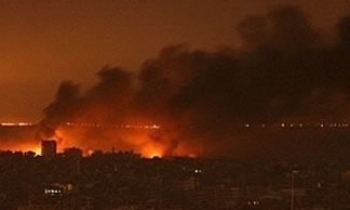The Andhra Pradesh government is now looking for scapegoats after its controversial gag media order came in for trenchant criticism from all quarters.

The Congress government in the state led by YSR Reddy had to perforce withdraw an order which said it could prosecute newspapers and television channels if they carried “defamatory news” against it. The order sought to empower the commissioner of information and public relations to file defamation cases against publishers and editors for “baseless and defamatory” reports against the government.
According to the government order, called Media Watch, issued on February 20, the state government had the unfettered right to prosecute a newspaper or a news channel. Its implementation was to be monitored by Reddy himself. The order was issued the day before the police conducted raids on a company owned by C Ramoji Rao, editor of Telugu daily Eenadu and a vehement critic of the Reddy government.
Though the order was issued by the general administration department on Tuesday last, it became public on Thursday and had to be withdrawn the same night.
The government was forced to beat a hasty retreat after it created a predictable controversy and had both the Opposition and the media up in arms over it. The state Assembly had to be adjourned after the Opposition parties protested vociferously and demanded that the government apologise for having issued the order in the first place.
YSR Reddy was quick to announce an “inquiry” into the incident by chief secretary J Harinarayana. Sources told the Indo-Asian News Service (IANS) that axe was likely to fall on a couple of officials in the general administration department by Monday when the state assembly reassembled after the weekend. Though the chief minister clarified that the order was issued without his permission, few are willing to buy this.
“As the government has already withdrawn the order, heavens will not fall and there is no need for the media to get agitated,” Reddy said. “As soon as I realised the contents of the order are objectionable, I immediately ordered its cancellation. It is normal for the government to cancel some orders that are routinely issued. Every year thousands of government orders are issued by various departments and it is not necessary to bring them all to my notice,” the chief minister contended.
The Andhra Pradesh Union of Working Journalists (APUWJ) welcomed the withdrawal of the order but urged the chief minister to take action against those responsible. It also demanded the disbanding of Media Watch, a four-member group of the information department to daily track media reports. Journalists held demonstrations in Hyderabad and elsewhere in the state.
- The “Media Watch” chaired by Hon’ble Chief Minister reviews about certain news items published / telecasted in print / electronic media with ulterior motives of tarnishing the image of the government. Therefore, orders are being issued from time to time, in exercise of the powers conferred under sub-section (4) of section 199 of the Code of Criminal Procedure 1973 (Central Act 2 of 1974) to initiate legal action against the Publishers and Editors who have published / telecasted these news items which are false, baseless and defamatory in nature to the government duly appointing the Special Public Prosecutor in exercise of its power under sec. 24 (8) read with sec. 199 (4) of the Code of Criminal Procedure, 1973.
- In some instances Secretaries are sending formal request for filing defamation cases regarding the news item published / telecasted while other Secretaries due to un-awareness of the news item being published / telecasted and sometimes not responding in time, hence the cases are delayed.
- Therefore, the Special Commissioner, Information and Public Relations in the letter read above has requested to accord permission to forward such prosecution items for legal action and for granting permission for having forwarded such prosecution items for legal action.
- Government after careful examination, hereby accord permission to the Special Commissioner, Information and Public Relations to lodge a complaint and for filing defamation cases through the Special Public Prosecutor against the Publishers and Editors and to initiate legal action. Government also ratify the action already taken by the Commissioner in having forwarded the cases for legal action.
- The expenditure incurred in connection with filing the complaints and for conducting prosecutions shall be met by the respective departments connected with the case. Therefore, the Commissioner, Information and Public Relations is authorised to raise bills against the departments concerned.
(By Order and in the name of the Governor of Andhra Pradesh)
Chief Secretary to the Government.









